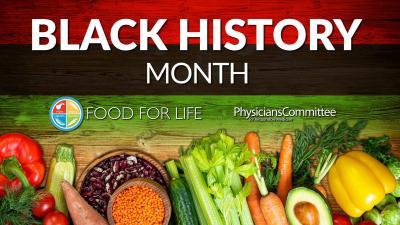The Human Body Is Complex, but the Solution to Many Diseases Is Simple

This is a guest post from Physicians Committee member Garth Davis, M.D. Obesity Week is a huge scientific meeting joining experts in medical and surgical weight loss to discuss the latest science pertaining to the disease of obesity. There were surgical discussions, behavioral therapy discussions, science on genetics, science on diet, etc. For a science geek, the meeting was fantastic. That being said, I did get the feeling that for the most part, we may be missing the forest for the trees. Let me explain. Nutrition researcher and author Marion Nestle said, "The problem with nutrient by nutrient nutritional science is that it takes the nutrient out of context of the food, the food out of context of the diet, and the diet out of the context of the lifestyle." This is no more evident than in these large scientific meetings. The studies that were reviewed looked at the minutest changes in the body. Nobody really talked about food at all. We talked about protein, carbs and fat, but never once was an actual food mentioned. I often wonder what these scientists think a "protein" is. What would they classify a bean, which is starch and protein? Or steak, which is protein and fat. The other problem is that the goal of all the science was not to demonstrate a new way to eat but rather to find targets for drugs. For example, there were some interesting studies on brown fat versus white fat and how we could potentially discover a medication that could turn white fat to brown fat and thereby raise metabolism. On the surgery side, discussions centered around how we can improve the surgery and handle the complications that inevitably occur. If someone fails the surgery, what other surgery can we do? There was no real mention of what we should tell people to eat after we alter their GI system with surgery. One presentation really showed perfectly how we have missed the big picture by delving so deeply into the biochemistry and physiology. A very intelligent scientist was reviewing her incredible research questioning whether pancreatic beta-cell dysfunction was the first step in developing obesity and diabetes. Her work was intricate and complicated. She demonstrated that consumption of heme iron, oxidizing substances, and acid may cause the beta-cells to stop functioning. At the end of her talk, someone asked her what she eats and she said a "low-carb diet." What??!!! A low-carb diet implies a high-protein diet, which implies a high-meat diet. Meat is the source of heme iron, oxidizing substances, and acid. Meanwhile, most low-carb diets avoid fruit, which is an excellent at scavenging oxidized substances and neutralizing acids. There is great research showing that whole-food, plant-based diets are the best for weight loss, diabetes, and heart disease. Unfortunately, the medical community seems to believe it needs to be more complicated—or that patients just can't follow such a diet. The complexity of the human body and its response to food is fascinating, but the solution to our Western diseases is really much simpler than Western medicine will realize. Eat your fruits and veggies and get moving. That is far more important than any bit of science we discussed. There will never be a silver bullet miracle pill. Hippocrates’ ancient words will always hold true, "Let food be thy medicine and medicine be thy food." Dr. Garth Davis is a surgeon in Houston specializing in bariatric surgery.







